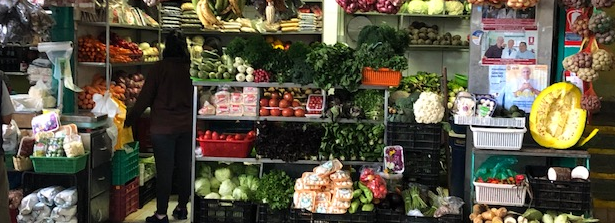Reverse thinking for finding Food Systems solutions

The recently agreed reform of the international research network CGIAR provides a unique opportunity for making new steps towards a more effective, responsive and inclusive approach towards food systems analysis. Based on the unified governance envisioned to lead ‘One CGIAR’, it is of foremost importance to support changes in the composition of the research portfolio and a more fundamental adjustment in research practices.
A major challenge for the new One CGIAR is related to the possibilities to support ‘research for impact’. That means that priority setting should be based on ’reverse thinking’ principles that first ask for a thorough understanding of the root causes of poverty, malnutrition and climate change before outlining the possible sets of solutions. Whereas we certainly need more in-depth research on the constraints to agricultural and rural development, far too much attention has been given to ‘technological fixes’ at the expense of identifying real ‘system solutions’. Moreover, the dynamics and governance of food system change processes are still badly understood.
It is important to recognize that much documentation on ‘best practices’ fails to identify why technological improvements do not actually deliver the expected impact for effective system change. Therefore, learning from failures remains fairly limited and insights on suitable incentives for overcoming critical trade-offs is delayed.
Many of the so-called climate-smart agricultural practices face constraints of smallholder adoptions due to severe labour or capital constraints. On the other hand, several programs focussing on income and employment creation hardly deliver on improving food security and nutrition (mostly because gender empowerment has not been adequately addressed). Farmers participating in successful programs to support vegetables or dairy production for improving diets suffer from adverse price effects when supply surpasses demand. All these examples should make us rather modest with respect to the possibility of reaching impact at scale.
CGIAR would need to introduce substantial changes in research practices to be able to contribute to finding system solutions. System solutions typically identify key constraints outside the area where the immediate problems occur. This means that we not only need a sound understanding of the interactions and feedbacks (‘nexus’) within food systems at different scale levels, but also should be able to understand the likelihood of trade-offs between different food system outcomes.
For enabling the CGIAR centres to become fully engaged in and committed to systems research, three critical changes in research practices are required:
- Interdisciplinary cooperation between scientists with different backgrounds, particularly for linking technological options to socioeconomic realms;
- Knowledge in Development (KiD) building research networks around the real-time interventions to understand better the factors influencing success and failure;
- Multi-level approach, looking at new technologies and better practices in direct relationship to farmers’ adaptive behaviour (downstream linkages) and their responses to policy support (upstream interactions).
In order to support CGIAR in making these adjustment in research practice, also the institutional embedding of knowledge management needs important changes:
- Country ownership, engaging local and (sub)national public, private and civic partners in the definition of research priorities and supporting policy uptake;
- Network research, linking CGIAR staff to local and international academic knowledge and practice networks, support cooperation (integration?) amongst CGIAR centres, and above all facilitating interdisciplinary capacity building of local staff;
- Opening-up the portfolio of development agencies for real-time CGIAR research experiments, thus improving the learning on food systems improvements. Introducing a simple mark-up of 2-3% on outstanding projects for agriculture and nutrition could generate enough resources to foster impact-oriented CGIAR R&D activities.
A start has been made to reform the CGIAR system, now it is up to all parties involved to make the next step for developing new research practices that can deliver on the triple SDG duty of inclusive, sustainable and healthy food systems.





